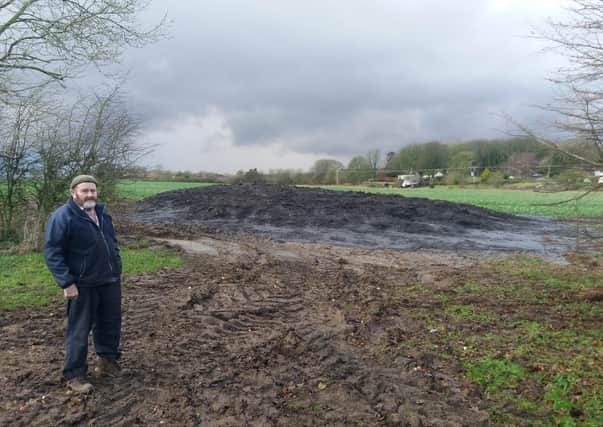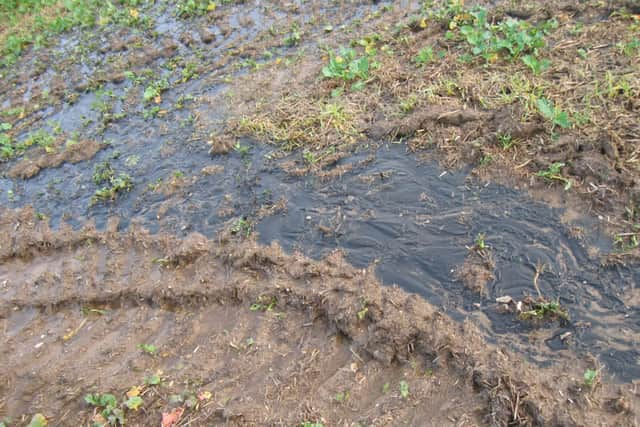Concerns over long-term effect of sewage on land at Ludford


Concerns over the heap were first raised by Gordon Stanley when it appeared in Sixhills Lane a few months ago.
He feared seepage from the heap could run down into a river, as the land slopes away.
Advertisement
Advertisement
Since then, he says he has repeatedly raised his concerns with the authorities, but his concerns have fallen on deaf ears.


Mr Stanley said: “I think people have a right to know what they are walking past on Sixhills Lane, and what disease’s may be in the atmosphere around this heap of human waste.
“The Environment Agency are issuing licences to companies to tip large quantities of human waste in open countryside, close to public roads and peoples homes as they have here.
“This area is part of the Lincolnshire Wolds Area of Natural Outstanding Beauty (ANOB). This area is also part of a Nitrate Vulnerable Zone, (NVZ) where extra care should be taken when storing organic materials,such as sewage sludge because of its high nitrogen content.
Advertisement
Advertisement
“The Environment Agency rules have not been followed on this site.”
The issue of the use of sewage sludge is something Mr Stanley has looked into at great length and he is following research into its effects.
Mr Stanley claimed: “In 2012, the University of Aberdeen did a study of sheep which had grazed on land treated with sewage sludge.
“They found a high incidence of abnormalities in the animals. The abnormalities are being attributed to the presence of man-made hormones, particularly those found in the contraceptive pill, which the treatment process does not remove from the sludge.”
Advertisement
Advertisement
Mr Stanley has this question for the authorities and his fellow farmers alike: “Should we be putting this sewage sludge on farmland? It may be cheap fertilizer, but at what future cost?”
The Rasen Mail contacted the Environment Agency for a comment on Mr Stanley’s concerns.
A spokesman said: “We have not received any recent reports of pollution or incorrectly stored slurry in the Ludford area.
“If people want to report suspected pollution they can do so to our 24-hour incident hotline on 0800 807060, or by visiting www.gov.uk/report-an-environmental-incident.”